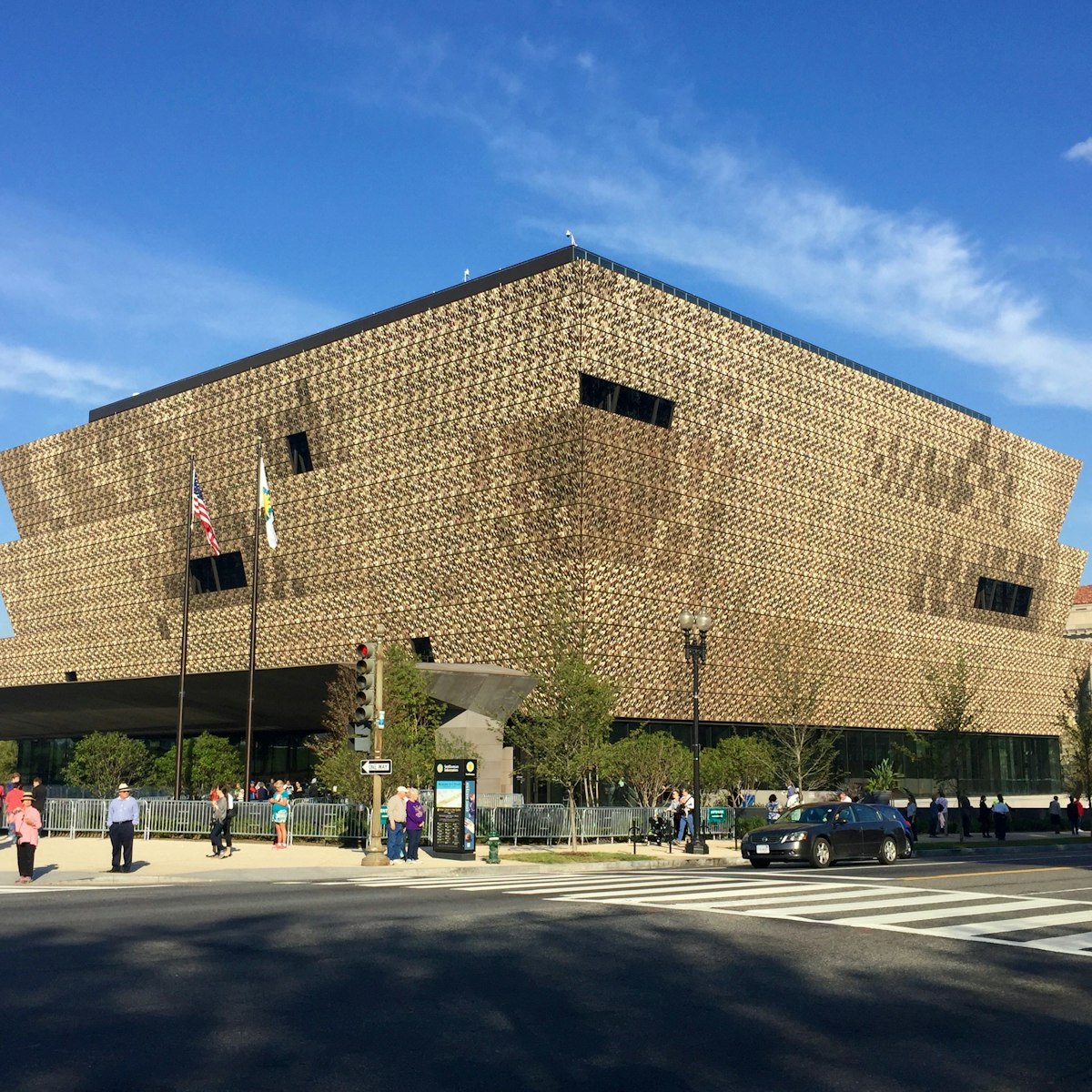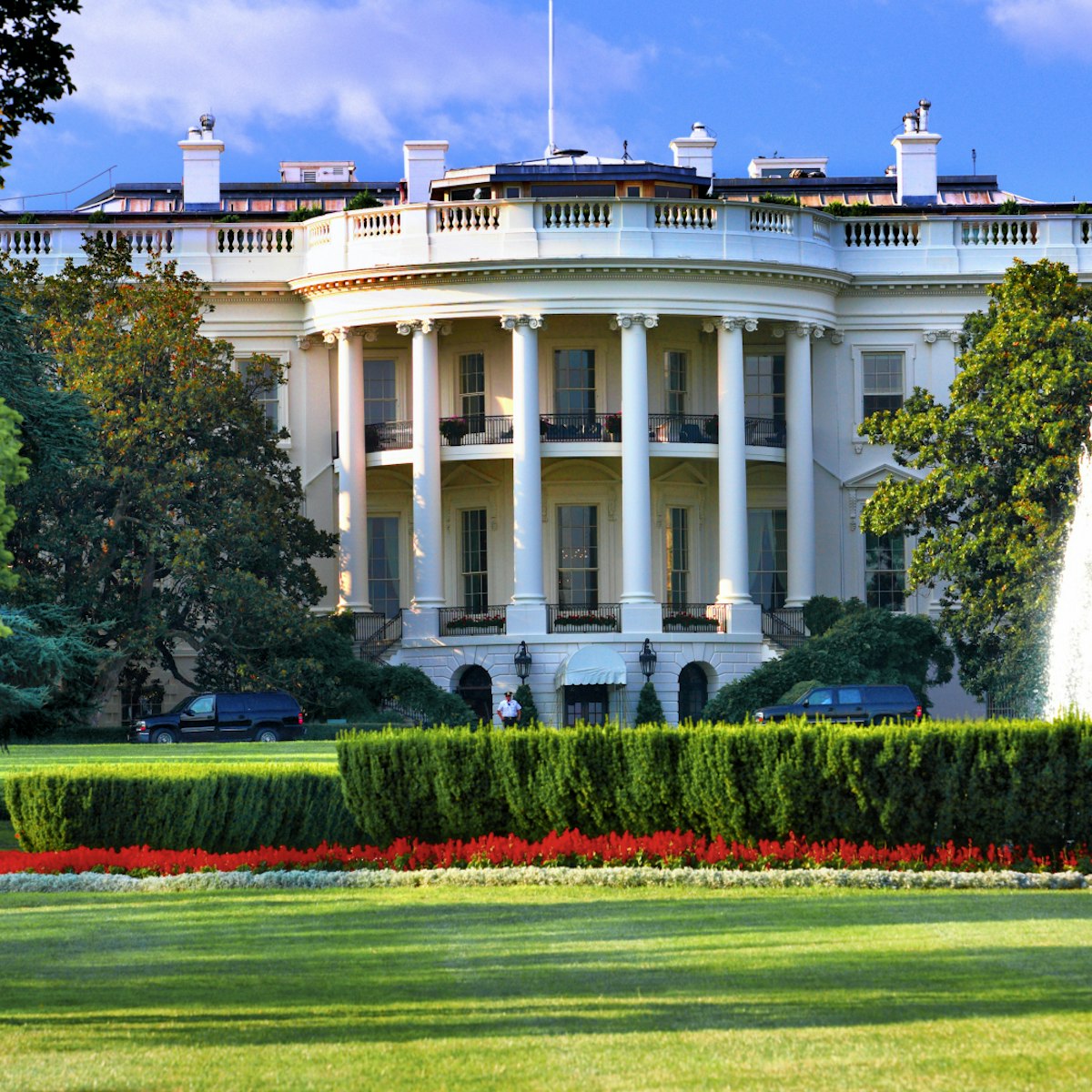If George Washington showed up today at his Mount Vernon estate in Virginia, he would find things essentially as he left them when he died in 1799. The mansion’s rooms have been meticulously preserved with his own furnishings or period likenesses, including his study, his bedchamber and the New Room, one of the grandest rooms in colonial America.
But above all, Washington was a farmer at heart. On 500 hilly acres surrounding the mansion, you’ll find four gardens, a working farm and the restored quarters of enslaved people who worked the plantation.
A not-to-be-missed education center offers interactive exhibits and videos that trace Washington’s life and legacy.
History
George Washington’s father, Augustine Washington, built a small house on the property in 1734. The future president’s half-brother, Lawrence, lived there until his death from tuberculosis in 1752, when his widow leased the house to the young Washington (and he inherited it upon her death). Washington renovated the house to what we see today, including raising the roof to make it two-and-a-half stories, and adding the north and south wings, the cupola and the piazza. At nearly 11,000 square feet, the mansion was 10 times the size of an average home in colonial Virginia. As much as he loved it, Washington barely saw the estate between 1775 and 1783, when he was serving as commander-in-chief of the Continental Army. After the war, he returned to Mount Vernon, expanding the plantation to nearly 8000 acres. His home life was interrupted again while he served as the United States’ first president (1789-97). At the end of his service, he returned to Mount Vernon, where he died.
The house fell into shambles until 1858, when the Mount Vernon Ladies’ Association bought the estate and about 200 acres for $200,000. The association continues to own and operate the estate.
Highlights of Mount Vernon
Ford Orientation Center
Just beyond the main entrance, the Ford Orientation Center offers resources to help plan your visit. A variety of short films provide background, including Washington’s famous crossing of the Delaware River, challenges he faced in building a new nation and how Mount Vernon was saved from dereliction. Allow at least three hours for a property visit.
The mansion
From the orientation center, follow a tree-shaded pathway to the mansion, where you’ll line up on the Bowling Green (front lawn) for your visit. As you make your way through the rooms, guides describe highlights. Look for family portraits, the Washington coat of arms and the key to the Bastille that Washington received from the Marquis de Lafayette in 1790. You’ll end on the terrace overlooking the Potomac River, where you’ll want to pull up a rocking chair and take in the splendid view.
Donald W. Reynolds Museum & Education Center
Twenty-three state-of-the-art galleries and theaters delve into George Washington’s life and legacy at this relatively new museum and education center. You’ll watch his progress from being a surveyor, learning to lead in the French and Indian War and expanding his plantation at Mount Vernon before he went on to head the ragtag Continental Army, win the Revolutionary War and become the first president of the United States. You’ll learn about his marriage to Martha Dandridge Custis in 1759 (and see a display of her gold silk damask wedding dress). One fascinating gallery uses futuristic forensics to create three life-size figures of Washington, at ages 19, 45 and 57. The Revolutionary War Theater takes you into the throes of war with 4D effects, including falling snow, fog, flashing lights and a rumbling cannon. Another gallery explores Washington’s dependence on enslaved people for Mount Vernon’s success, including personal stories of several residents. And this is where you’ll find Washington’s famous false teeth—in reality they were not made from wood but ivory, gold, lead and human teeth (which may have been pulled from enslaved people).
Allow at least an hour to see all the exhibits.
Gardens
Four gardens serve different purposes, including a formal garden used to entertain the Washingtons’ guests; the greenhouse, where Washington cultivated tropical plants (including limes and lemons for fancy dinners); a kitchen garden; and a small botanical garden, where he experimented with new plant varieties.
Farm
A four-acre farm demonstrates what life was like on Washington’s one-time 8000-acre plantation. People in costume work in the fields and harvest crops. Farm animals run around including Hog Island sheep, Dominique Chickens and Red Devon cattle. There’s also a replica of a cabin where enslaved people would have lived.
The tombs
George Washington died on December 14, 1799, and, although Congress wanted him laid to rest within the newly built U.S. Capitol, he was buried at his request at Mount Vernon. A brick tomb in a woodsy enclosure holds him, Martha and other family members. It’s a quiet place to contemplate the life and times of the father of the US.
Other practicalities
There’s a food court, colonial-style restaurant and gift shop near the entrance.
Several companies offer seasonal boat trips to Mount Vernon, including the City Cruises Mount Vernon Sightseeing Cruise, departing from Washington, DC’s Wharf and from Alexandria, Virginia.
You can also hop on a bike and pedal along the scenic Mount Vernon Trail (10 miles from Alexandria).
George Washington’s Distillery
Washington also was a whisky distiller, boasting one of the nation’s largest distilleries at the time. Located 2.7 miles from the estate’s main entrance, it burned down in the 1800s but was faithfully recreated in 2007 and is open to visitors.
Did you know?
Although the mansion looks like it’s made of stone, it’s not. Washington “rusticated” the exterior, a less expensive method of producing a stone look by using yellow pine siding sprinkled with sand.
Tickets and other practicalities
· 15 miles south of Washington, D.C.
· Public transportation: Metro (yellow line) to Huntington, then hop on the Fairfax Connector bus 101
· Price: $28 adults, $15 youth (6-11), children under 5 free. General admission includes audio tour. Buy tickets online in advance to save time (and money).
· Separate reservation must be made for a mansion tour
· Variety of other tours offered daily, including an in-depth mansion tour
· Distillery open Sat-Sun Apr-Oct by tour only; adm $10










